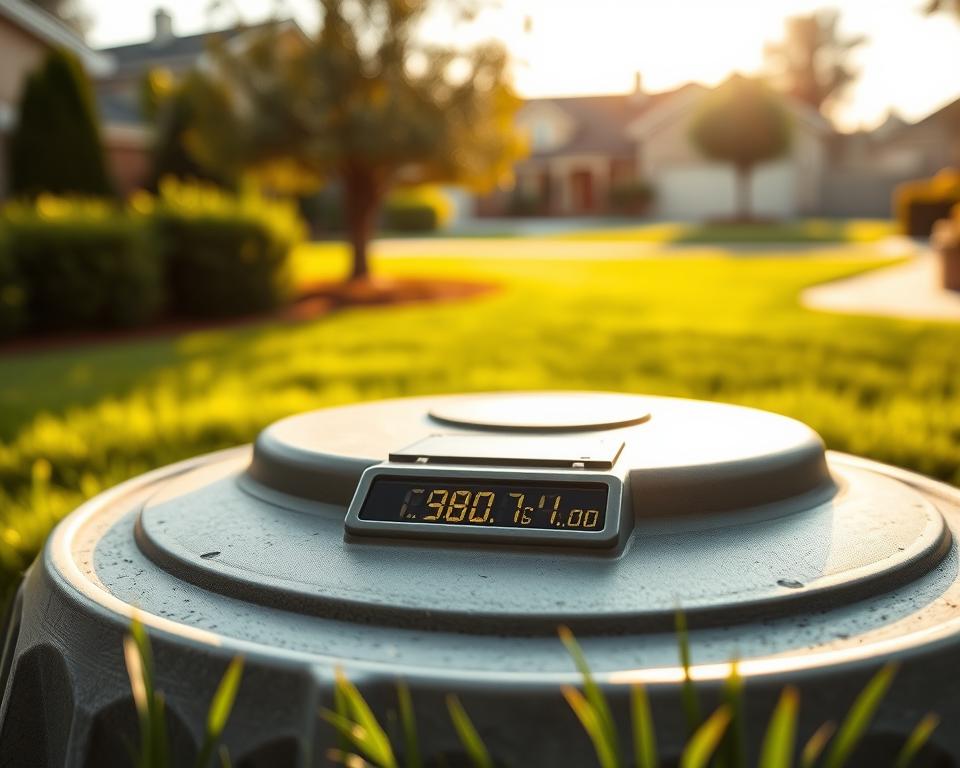Preserve Septic System Cleaning for Tank Health
Have you ever pondered about the consequences of neglecting septic system care? For homeowners relying on these units for sewage handling, skipping regular care can lead to significant bills. It also introduces risks to both well‑being and the ecosystem. Servicing your septic system is far from a quick task; it’s vital for ensuring your residence runs smoothly. By regularly emptying your septic tank, you stop sediment build‑up and lengthen the lifespan of your unit. This forward‑looking stance allows you to dodge any troublesome scenarios. Find out the importance of septic tank upkeep and the process entailed with septic tank cleaning services near me.
Significant Points
- Regular septic system cleaning is vital for avoiding costly restorations.
- Ignoring upkeep can cause health risks for your loved ones.
- Knowing your septic system helps in effective care.
- Indicators of a malfunctioning septic system should be identified quickly.
- Expert contractors can support in maintaining excellent tank health.
Understanding Your Septic System
A septic system is an economical on‑property solution for processing wastewater. It mainly consists of two parts: the septic tank and the drainfield. Both are vital for ensuring safe treatment and safeguarding the surroundings.
The septic tank gathers wastewater from your home. Inside,, waste solids settle to the base, and fluids float to the surface. Beneficial microbes within the tank decompose the organic material, making the outflow simpler to handle. This pre‑treated wastewater then flows to the leachfield for further purification by the soil, concluding the cycle.
It’s crucial for homeowners to appreciate the mechanics of their septic system. Learning how the septic tank and leachfield function as a unit can foster better system care. This insight encourages effective maintenance methods, ensuring the system’s robustness.

Value of Consistent Septic System Cleaning
Regular maintenance of the septic system is crucial for domestic and public health. If overlooked, unprocessed wastewater can leak into your yard. This escape may result in groundwater contamination, introducing dangerous conditions. By servicing the septic system clean, you protect your family and the environment.
It’s suggested to pump the septic system every three to five years, based on how much you rely on it. Such care is not just eco‑friendly; it prevents expensive repairs. A septic system that’s regularly serviced operates more efficiently, ensuring a safer household and a safer environment.
Warnings Your Septic Tank Needs Service
Homeowners need to recognize clues that their septic tank may need pumping. Primary indicators to monitor are:
- Delayed draining in washbasins, bathtubs, and toilets
- Bad smells near the drainfield
- Effluent returns in indoor pipes
- Extended soggy spots or lush sections of grass over the septic system
It’s essential to recognize these warnings promptly to avert significant septic tank failures. Regular inspections are vital. They find issues before they turn into costly repairs. Checking your system periodically guarantees it operates well and endures longer.
Being mindful and responding quickly are key for septic system maintenance. By observing these alerts, you can maintain your septic system in prime condition.
Septic System Cleaning Frequency
Servicing your septic system regularly is key to ensuring your home’s plumbing in top shape. Professionals usually recommend servicing the septic tank every three to five years. However, this can vary depending on the number of your household, how much water you use, and the size of your tank.
If you have a high‑occupancy household that uses more water, you may require to pump the system at shorter intervals. Tracking your water consumption can help you figure out if you need to adjust your cleaning schedule.
All in Sanitation advises setting up a steady pumping schedule that matches your household’s unique needs. Following a set maintenance routine helps keep your septic system functioning effectively and prevents expensive repairs.
Septic System Cleaning: Top Tips
For a septic system to keep healthy, homeowners must observe key habits. It’s vital not to flush non‑biodegradable items; doing so stops obstructions and keeps the system functioning properly. Similarly, minimizing household chemical usage preserves the required bacterial ecosystem. These measures are key for the system’s durability and efficiency.
Being proactive with regular inspections is key. Scheduling routine assessments can catch issues quickly, allowing for immediate repairs. Additionally, saving water through repairing drips and conscious usage boosts septic tank health. These measures guarantee the system runs smoothly for years.
It’s also essential not to drive on the leachfield. Keeping this area unobstructed ensures it properly manage waste water, shielding your system from issues. Following advice from experts like All in Sanitation also improves septic system care.
The Procedure of Septic Tank Pumping
For homeowners, grasping the septic system service process is important. A licensed septic pumper should handle regular septic tank pumping to ensure your system functioning efficiently. The first step is assessing the tank’s state to decide when it is due for pumping.
A septic tank requires pumping once the solids fill about a third to 50 percent of its capacity. The licensed septic pumper will then extract these deposits. This step maintains the system’s efficiency. Furthermore, the appointment may entail examining the tank for potential issues, allowing for prompt fixes.
Keeping a log of each pumping session is smart. This log helps homeowners track their septic system’s upkeep, and is helpful if listing the property. Regular septic system maintenance improves its longevity and functionality, heading off costly fixes down the line.
Septic Tank Check‑Up: What to Examine
Scheduled inspections are essential for your septic system’s condition. Using a detailed septic tank inspection checklist can reveal latent issues before they worsen. Inspections should be done by a qualified technician every one to two years. They will measure sludge buildup and the scum thickness during this check.
Checking the inlet and outlet baffles and outflow filters is also crucial. These parts are key for your septic system’s proper function. Spotting seepage or malfunctions early can avoid large repair costs. Forward‑thinking actions, like using an inspection checklist, enhance your system’s longevity and efficiency.
Professional Septic System Services
Engaging expert septic system services is crucial for your septic system’s integrity. By partnering with a company like All in Sanitation, you make sure that qualified professionals take care of the cleaning, check‑ups, and fixes carefully. Accredited technicians possess specialized knowledge, allowing homeowners to maintain the system’s optimal functionality long‑term.
Servicing by licensed experts cuts the chance of sudden failures and hefty fixes. These services feature detailed inspections that assess the system’s status, identifying incipient issues before they escalate. Maintaining this preventive approach significantly lengthens your septic system’s longevity.
At the end of the day, handing over your septic system to qualified experts offers confidence. Collaborating with companies such as All in Sanitation taps into their expertise. It guarantees the health of your tank, creating trust in its maintenance.
Septic System Maintenance Tips for Homeowners
Homeowners have the ability to keep their septic systems running smoothly. Using smart care hints greatly enhances their function. Implementing simple adjustments to how we use water, like cutting down on excess use and distributing the use of appliances, lessens strain on the system.
Adding efficient fixtures in your washrooms and kitchens greatly supports septic durability. These fixtures cut down water use without sacrificing functionality. Not using garbage disposals is wise too, as they lead to more residue in the system, requiring more frequent upkeep.
Consistent inspections and following a sound maintenance plan will prolong your septic system’s lifespan. Staying aware of everything that enters your drains is essential for preserving a robust septic environment. By embracing these measures, you’ll greatly support your septic system’s performance and durability.
Common Septic System Repairs
Septic systems may experience various issues over time, requiring repairs. Typical problems are seepage, faulty baffles, and flow problems in the drainfield. By spotting the warnings promptly, homeowners can tackle them swiftly, keeping their system is in sound condition.
Standard repairs involve:
- Changing out defective pieces to bring back system integrity
- Fixing or substituting damaged pipes to stop leaks
- Removing obstructions from blocked pipes to maintain proper drainage
Addressing septic issues quickly not only lowers expenses over time but also prolongs the system’s life. Routine check‑ups and maintenance can avoid these complications, contributing to the care of a healthy septic system.
Wrapping It Up
Keeping your septic system healthy is key to ecological and family well‑being. Consistent pumpings and examinations prevent costly fixes and hazards. Being proactive with septic care saves resources and minimizes concern.
Employing specialists like All in Sanitation delivers top‑notch upkeep adapted to your requirements. Their experience assists detect issues promptly, averting major troubles and highlighting the need for scheduled inspections.
Adopting effective habits for septic maintenance ensures long‑term system performance. A bit of maintenance now ensures a better‑functioning septic system in the years ahead.


